5. The Hunt
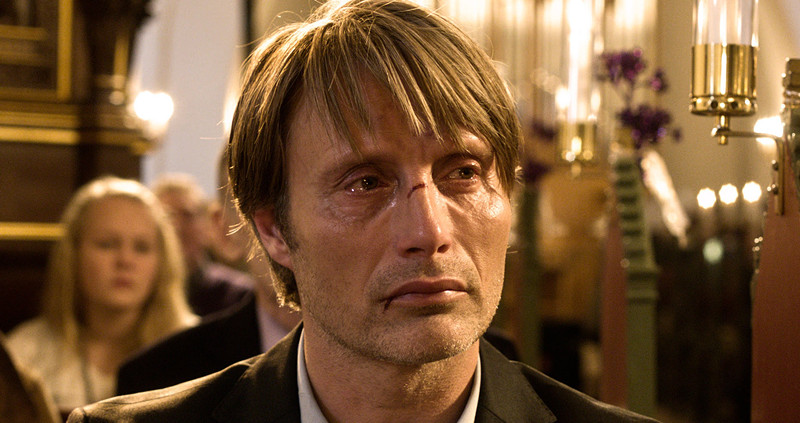
As directly mentioned earlier on the list, The Hunt manages to make Mads Mikkelsen, an actor with an already sinister face, excelling at fully capturing the harrowing natures of various antagonists including the iconic Hannibal Lecter, in which his portrayal surprisingly rivalled that of the great Anthony Hopkins, feel extremely convincing as the gentle kindergarten teacher, Lukas.
The film is perhaps the most terrifying tale on mob mentality. Mikkelsen’s character, Lukas, a hapless teacher was accused of sexually abusing one of his students, a lie emerging from childlike ignorance, a lie that snowballed into extreme proportion, a lie that absolutely ruined him. It’s an extremely emotionally draining experience for the film to set up the world as a tightly knit community which holds Lukas in high regard, showing audiences his friends and family and their bond together before making that same group of people turn on him and absolutely ruin him over the course of the next hour.
Seeing a once gentle and well-loved man slowly deteriorate to a broken shell of his former self, abused both emotionally and physically, makes the whole experience seem much akin to a horror film, considering how ridiculously easy and more importantly, realistic the whole chain of events was.
Though not a horror film in a conventional sense, The Hunt is probably as effective as The Omen in keeping adults away from children, and of course, inciting fear into the hearts of the common man.
4. Inside Llewyn Davis
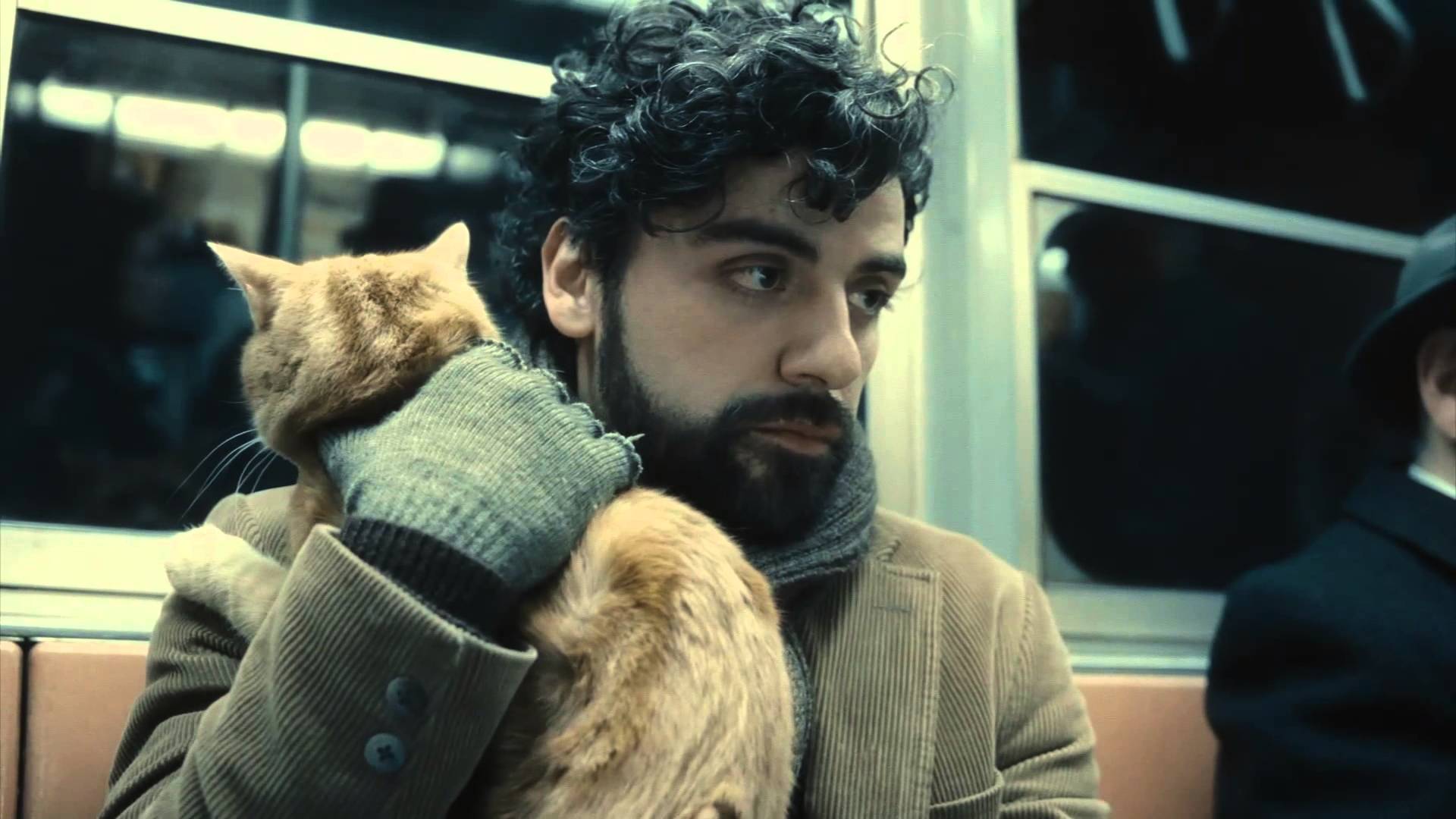
The Coen Brothers have always been known for crafting the most thought-provoking yet hilariously entertaining films, with films like The Big Lebowski and Fargo hilariously satirise well-known crime subgenres. Which is why it came as a pleasant surprise how Inside Llewyn Davis, an intimate character study of a failing folk musician quietly alleviated to one of, if not their best work of all time.
Though the film was a pleasant surprise, it is nowhere near “pleasant”, considering the depressing atmosphere it carries, even the entire film is colour graded with a soft blue hue. The film follows the titular Llewyn Davis as he struggles to make it in the music scene amidst the backdrop of the 60s, a known breakthrough era for musicians. Llewyn Davis is not one of those musicians.
The film depicts his struggle, both externally with financial and peer pressure, and internally, fighting back his realistic and egoistic thoughts. Though the film is similar to other character study films in its depiction of internal and external struggles, what’s different about this film is that unlike other protagonists, Llewyn Davis is not a sympathetic one, in the sense that he is, for the lack of a better word, an asshole.
He’s rude, he’s selfish and he’s egoistic, but despite all of these flaws, there’s something to his character that makes us genuinely care. We forgive his shortcomings and empathize with his situation, we feel the cries behind every haunting song he sings. Maybe we all have a little bit of Llewyn inside of us, an arrogant tortured artist, trudging through the desolate snowscape, begging for some form of validation, from others and ourselves.
This film also goes to show the versatility of the Coen brothers, writer-directors known for their uniquely profound comedies, they still maintain the capability to craft intense crime thrillers such as No Country for Old Men and of course, the lesser known and arguably better, Inside Llewyn Davis.
3. Dancer in the Dark
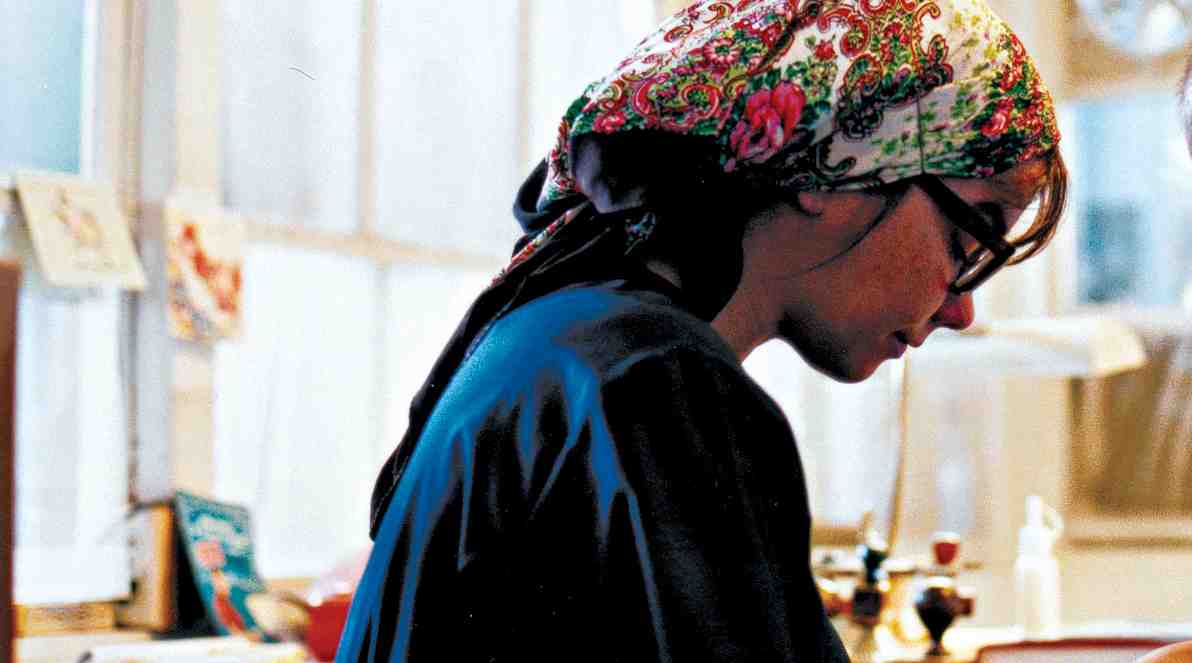
Lars von Trier is perhaps the most influential figure in the cinema of the avant-garde, constantly finding innovative ways in telling a unique story. Dancer in the Dark is one salient example of which, being a musical that abandons the whole idea of hopefulness in favour of pessimism, in other words, a depressing musical.
The final instalment of the Golden Hearts trilogy, a trilogy of films exploring, in von Trier’s own words, “good women overwhelmed by a bad world”, Dancer in the Dark follows Selma, masterfully played by Icelandic singer Bjork as she struggles with a troubling son amidst her impending blindness as well as her low income. This description alone would already be enough to suggest an emotional experience, but Dancer in the Dark is so much more than that.
Von Trier’s destructive style of editing, with his penchant for jump cuts packing the film’s actions tightly together, showing only what he deems to be important. This essentially intensifies the emotions, constantly buffeting audiences with beat after depressing beat.
Though Bjork had recently came out in an interview hinting at von Trier’s alleged abuse on set of Dancer in the Dark, it’s no denying that however unethical, the performance that stemmed from her, a musician by trade is absolutely gut-wrenching, with the final song she sang being as emotional as any song sang by Inside Llewyn Davis, fighting back tears and forcing a smile awaiting the unknown.
With that being said, however depressing, Dancer in the Dark is still inherently a musical, and as do any other musical, the film is not entirely free from heartfelt moments of joy, with experimental music numbers on the mundane complete with Bjork’s unique voice providing us with much needed breathing spaces, hinting to us the importance of finding beauty in the little things in life, a mantra held true by Selma all the way until the end despite her predicament.
2. Bleak Night
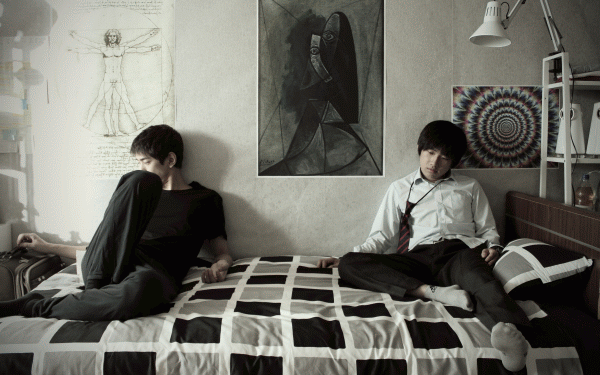
Perhaps the most obscure on this list, Bleak Night is a South Korean indie coming-of-age film that depicts the relationship of three best friends.
Though the film feels very lacking and amateurish on a technical standpoint, the story is absolutely phenomenal. The way information is revealed to the audience is done in such a way that’s both innovative and subversive, playing our own perspectives (also a major theme in the film) and ideas surrounding the whole concept of suicide, bullying and conventions of the coming-of-age genre.
Though leaning towards the dangerous alley of melodrama, moments in the film always felt earned and warranted. It is very much a character-driven film, each character has their own distinct personalities and more importantly, distinct weaknesses, cracks amidst their cocky, angst-driven teenage personas.
It is through these cracks that the film explores the idea of friendship, which the film challenges and uses as a tool for emotional response, and of course, more importantly, the aforementioned idea of perspective. The film opens with a bullying, and then, a suicide.
As information is slowly presented to the audience, we learnt that the suicide is not the victim, but the bully, an extremely peculiar piece of information which would of course, draw audiences into the world of the story, and with this bit of information, we analyse the bully’s story arc with greater scrutiny, again with the idea of perspective, with each character, despite all being close friends, having their own unique perspectives on different situations, be it situations regarding themselves or others.
This film is extremely effective in exploring such ideas, reflecting society’s inherently selfish attitude, how we as people generally only look at one another on the surface, disregarding the emotional turmoil building underneath, even if it stemmed from seemingly miniscule things, and it would honestly come as no surprise if your perspective on bullying were to change after seeing this hidden gem.
1. Shame
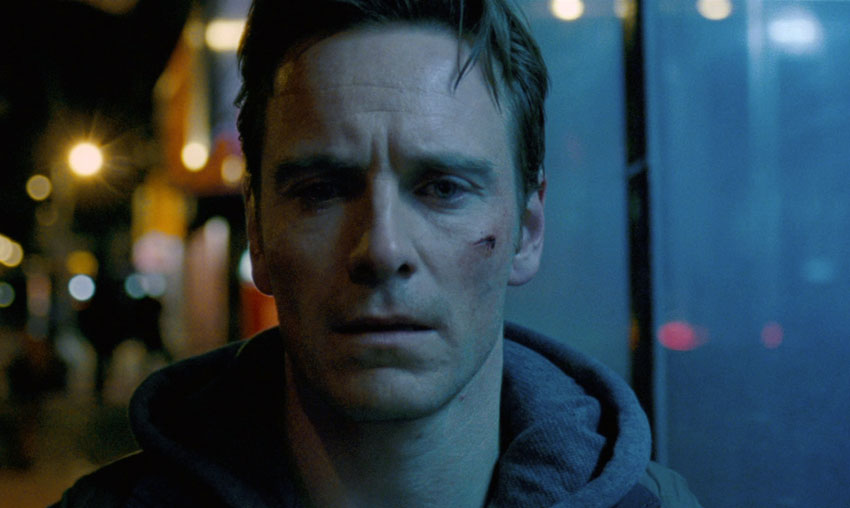
A brilliant character study of a man addicted to sex but afraid of love, Shame is a masterpiece in every sense of the word.
The film chronicles Brandon, brilliantly played by the fantastic Michael Fassbender, whom throughout the film, we see the extent of his sex addiction, and how depraving and disgusting it is, how completely detached from reality. We see how such a seemingly ridiculous addiction affects his life and people around it. We as the audience are only presented with the effect of his addiction, never the cause, and like other addictions, we view it with scrutiny, the film illustrates all the explicit details of his deviant sexual endeavours.
What’s particularly poetic about Shame however, is the fact that while most other erotic dramas concern themselves far too much in illustrating sex, resulting in filmmaking void of intent, resulting in well-made pornographies and mediocre films, the fact is that Shame manages to impact audiences on a deep emotional level, despite being an erotic film.
Every detail feels extremely meticulous, nothing short of the brilliant mind which brought films like Hunger and 12 Years a Slave to the world with so much powerful subtext hidden behind every shot and every word, it’s almost as if if we could hear the thoughts of the characters.
Fassbender’s Brandon is sublime. Through his performance, we see the cracks in his stable façade, the cracks which are in fact, not reflecting his banal desires, but rather, his urge to break free. He wants to change, deep down. He knows fully well as we do or probably more than he has to break free from this aberrant private life he’s leading, but as with any other addiction, nothing is ever that simple.
It’s no easy feat to bring audiences on the verge of tears, that calls for an extremely moving character study piece, and considering the fact that Shame’s central character is a man addicted to sex, a man whose only real apparent conflict is with himself and finding true love, a man who constantly has sex with beautiful woman, a man that’s otherwise extremely relatable and an otherwise sympathetic individual.
A film able to not only breathe life to such a complex character but invoke a deep emotional response truly speaks wonders for its reputation, and considering the fact that Steve McQueen has only directed 3 features and 1 prior to this, and all of which rose to overwhelmingly critical acclaim, it’s riveting to anticipate what projects he would undertake in the near future.
Author Bio: Zach Wee is a film student from Singapore. Apart from being an aspiring filmmakerr, Zach has a strong passion for cinema and manages the website of his school’s film club, where he edits and also submits weekly film reviews.